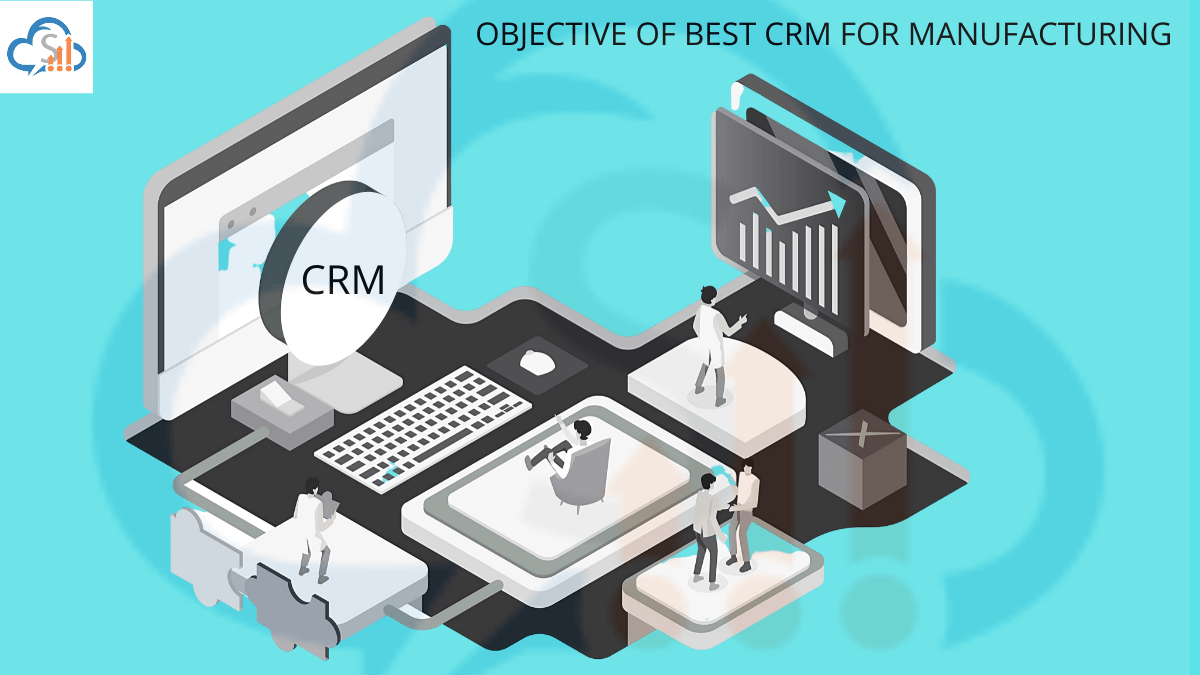We have witnessed dramatic changes over a couple of years in the manufacturing industry. In the lean manufacturing units, there’s a transformation with the implementation of modern equipment – latest technology for the production purposes seen, but many others are still continuing in the traditional methods of managing the sales force, due to the cost involved in implementing the manufacturing CRM and also the fear of creating problems in managing sales people.
“We don’t have sales people. We don’t need CRM.”
“Our sales reps are fine, they know their customers well and they use Outlook to manage their contacts.”
“We really only sell to existing customers and we have a lot of repeat business.”
Manufacturing Industries gives above excuses for not having the CRM implemented in their companies. It seems by implementing CRM for manufacturing industry involves a heavy amount of investment and also a big challenge of the business culture will change. Majority is the hesitation of accepting the change over from the traditional way of working pattern to work on the systems and usage of gadgets for getting the real-time reports. Moreover employees within the company oppose the management – stating the difficulties of using or getting adjusted to the CRM is not possible. Which is the wrong perception of the people. It is only because of the poor communication within and lack of ownership – taking the responsibility and using the CRM for the company growth as well as self efficiency and effectiveness can be seen.
Actually the CRM software used in manufacturing industry is not just only for Sales people, but it is useful for big industries and other businesses.
By maintaining the common spreadsheet over a system, filtering the spreadsheets for the projections purpose – which is tedious work and this will not be sufficient for the complete operations streamlining in the manufacturing industries.
CRM for Manufacturing Industry allows you to streamline the day-to-day processes in a manufacturing set up. With this great tool you can earn the confidence vote of the customers.
Most important of the manufacturing CRM for manufacturing industries, providing the database management – all about the organization related key clients, enquiries, quotations, and products. This will stand out as the best using tool for employees and the management.
Read our blog
Why your manufacturing industry need CRM
In recent days, many manufacturers neglect to buy CRM systems. The most common reason for this is that the extensive majority of manufacturing organizations are still depending on different legacy tools, like Outlook. Even though such kinds of tools are good at keeping track of contacts, they are not capable of providing users with a clear overview of the needs and expectations of the customers. In addition, they cannot improve the experience of your customers that they have with your organization.
Thankfully, CRM will help you to overcome this challenge. The main benefit of the CRM software comes from its in-built analytics and reporting features. CRM systems for manufacturing will not only collect and reserve customer information as well as their previous history and interactions with a business but also analyze this data and then offer useful insights.
When chosen and implemented properly, CRM will enable sales teams to increase the number of closed deals while decreasing the time spent. The marketing department can use the data to personalize campaigns and get insight into lead generation. The production department can also benefit from CRM: the tool will help to analyze order history and predict future inventory needs. What is more, the customer support department can use CRM solutions to decrease the time needed for resolving diverse customer issues.
Highlights of the CRM software used in manufacturing industry
- Sales Forecasting: Sales forecasting is the process in the manufacturing CRM software, wherein the sales team is providing the estimation on the upcoming or future sales. The accurate sales forecasts are helping the management in the manufacturing industries to make decisions on the expected upcoming short term and long term sales team performance. Moreover the companies are also able to forecast, on the basis of past sales data, sales figure comparisons and prevailing market trends.
- Optimum utilization of Sales Resource: Optimizing the sales resources towards working on the deployment, keeping them engaged with the key accounts – collaboratively and strategic basis as per the business modalities and territories assigned. With the help of the best CRM for manufacturing, critical deliverables can be completed and current sales order assigned to the team, ensuring the optimal customer coverage is done in time.
- Empower workforce with skill training: Empower workforce with skill training is helping the sales team – how to face the complex situation and providing the skill training on resolving the same. Make them handle the critical situation and think out of the box to come out of the situation. Creativeness in approaching the customers. Also of maintaining coordination with other team members with team spirit and working collaboratively. Last but not the least be able to make the right judgment and take the decision on the prospects for closing the sales.
- Market visibility to fight competitors: In the business it’s very essential to be ahead of the competitors, to beat them even if they are the toughest business rivals in the market. Pricing strategy to be best, so that you can overcome pricing. In the CRM for manufacturing industry, helps to capture the competitor details. Targeting the known market and able to manage with the demand and supply properly is also helping to back push the competitor, digitally the search engine optimization to be strong, also over social media. This will help to increase your online visibility and physical presence to overcome the competition.
Read our blog
- Boost Sales and Services: Software used in manufacturing industry, helping salespeople and service technicians to optimize their daily scheduled activities. Salespeople are able to prioritize their tasks – Sales meetings, demo, discussions and even service technicians are able to manage their customers, who are more critical and are not to be ignored by attending the task at the earliest. CRM for manufacturing companies helps salesperson, to spend more time interacting with the potential customers for the early sales closure. Service technicians get organized on responding to the complaints in time. Both – sales and service are able to streamline their process with productivity.
- Easier access to technology for real time information updates: Best CRM for manufacturing provides the real-time analytics, which is typically working on a set of predefined rules. Manufacturing CRM helps in providing the best recommendations, wherein management is able to make valuable decisions for the growth of business.
- Streamline Sales and Marketing process to increase revenue opportunities: Proper and regular customer communications, streamlining the salespeople by assigning the tasks, providing the meetings scheduled, able to bring more sales from the competitive market and improving the customer support will streamline sales and marketing process. Through the manufacturing CRM software, the strategies can be planned and implemented to streamline your sales process for the growth of sales revenue.

Objectives of Manufacturing CRM

Centralised Database: You can manage all your customers’ Databases in one place with manufacturing CRM. So it becomes easy to access the information, regarding any customer at any time. Just by a single click all Information can be viewed.
- Capture and track all customer information and interactions
- Real-time data to make informed decisions
- Identify Prospective Customers
Lead Follow-up Management: Online CRM software for manufacturing industry facilitates seamlessly capturing inquiries coming from a variety of sources, including website lead forms, marketing automation systems, and lead providers.
- Lead Capture
- Flexible Lead Distribution
- Continuous Activity Prioritization
- Real-Time Dashboard and Reporting
Tracking payments, delivery & dispatch: CRM for manufacturing industry offer functionality to schedule and track partial payments against orders, installation, purchases etc. also it automatically calculates pendency aging.
- Set partial payment reminders
- Track follow-up conversations
- Manage Dispatch Details
- Manage delivery logs
- Delivery and dispatch reports
- Pending order reports
Customer Service Excellence: How much time did a sales staff spent on answering basic Questions asked by the customers? Always give the customers confidence that they will get answers to their questions, quickly and reliably from the organisation.
The first thing comes into the manufacturer’s mind, post-sales implementation and delivery of the project. Manufacturing CRM software manages all the information and keeps all the team collaborating, so that they can perform their job right and keep the customer happy.
Cost Reduction: CRM software for manufacturing industry, helping the manufacturing units to streamline the complete process flow in a very efficient manner. Moreover it does not require any overhead support, it leads to reduction in extra cost & also helps in generating more revenue.
- Less time in lead filtering
- Optimize skilled workforce to save high employee turnover.
- Timely order processing saves customer service time and effort to retain the business.
- Real time inventory monitoring
- Demand forecasting save extra production cost
Conclusion
SalesBabu CRM for manufacturing industry, providing the 360-degree view of the customers. Help of the manufacturing CRM improving the sales team and boosting the team productivity to the core. Manufacturing CRM software is meticulously designed, which ensures smooth operations of the manufacturing industries – sales purposes are fulfilled, increasing the leads, conversion of the leads are faster and better sales productivity seen for the growth of the business revenue.













